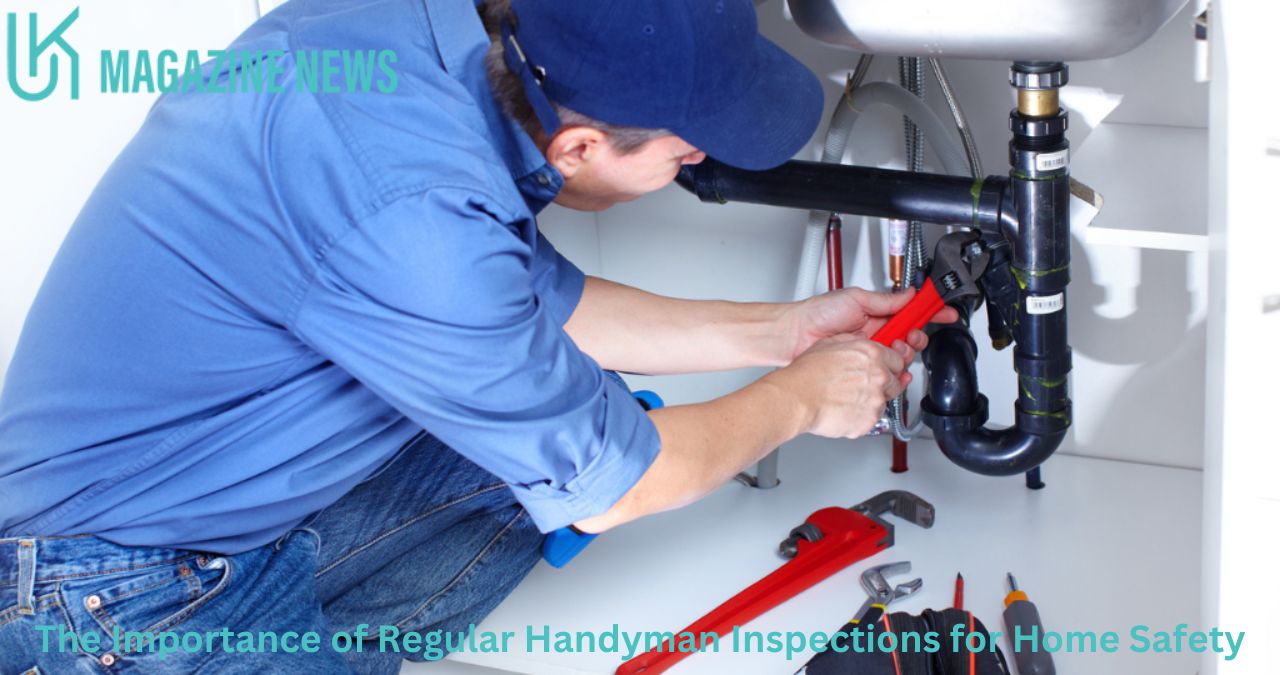Home safety is a priority for every homeowner, but maintaining it often requires regular attention to the house’s visible and hidden aspects. Over time, small issues can develop that, if left unchecked, can pose risks to the safety of those living in the home. This is where regular handyman inspections become invaluable. A handyman in Port St. Lucie, FL, can conduct thorough checks on various parts of the home, addressing any safety concerns before they escalate into larger problems. Regular inspections keep homes functioning well and ensure that safety hazards are identified and corrected promptly. We will explore how routine handyman inspections contribute to maintaining a safe home environment.
Benefits of routine handyman inspections
Identifying Electrical Hazards
One of the critical areas where a handyman inspection can improve home safety is the electrical system. Faulty wiring, outdated outlets, or malfunctioning appliances can lead to serious hazards, including electrical fires. A handyman can thoroughly inspect the home’s electrical system, looking for signs of wear, frayed wires, or overloaded circuits. During this process, the handyman may check outlets and switches to ensure they function properly and examine the electrical panel for potential issues. By addressing electrical hazards early, homeowners can prevent accidents and protect their homes from fire risks. Regular electrical inspections are especially important in older homes where wiring may not meet modern safety standards.
Preventing Water Damage and Mold
Water damage is a common problem in homes, often caused by hidden leaks or faulty plumbing. If left undetected, water damage can lead to mold growth, posing health risks and structural concerns. During a routine handyman inspection, the plumbing system can be thoroughly checked for leaks, signs of moisture buildup, or faulty connections. The handyman can inspect areas such as sinks, toilets, showers, and basements for water-related issues. Regular inspections can also catch problems like clogged gutters or downspouts, leading to water pooling around the house’s foundation. By identifying and addressing water damage early, homeowners can prevent the spread of mold and avoid costly repairs.
Securing Structural Integrity
A home’s structural integrity is another important area a handyman can assess during regular inspections. Over time, wear and tear can lead to the deterioration of structural components such as beams, foundation walls, and floors. A handyman inspection can help identify cracks in the foundation, sagging floors, or damaged support beams that could compromise the stability of the home. Additionally, a handyman can check exterior features such as decks, porches, and stairs to ensure they are properly maintained and safe for use. By conducting these inspections regularly, homeowners can ensure their homes remain structurally sound and safe for their families.
Improving Fire Safety
Fire safety is a crucial aspect of home maintenance; regular handyman inspections can help improve it. During an inspection, a handyman can check that smoke detectors and carbon monoxide alarms are installed correctly and properly. They can also replace batteries and test the alarms to ensure they are sensitive to potential hazards. Handymen can inspect fire extinguishers to verify they are fully charged and ready for use. In addition, a handyman can look at areas of the home prone to fire hazards, such as the kitchen or fireplace, ensuring that everything is in good condition and that no dangerous buildup of flammable materials exists. Homeowners reduce the risk of accidents by prioritizing fire safety in routine inspections.
Addressing Trip and Fall Hazards
Falls are among the most common causes of injury in the home, particularly for older adults and children. During regular inspections, a handyman can identify and eliminate potential trip and fall hazards. This may include securing loose floorboards, repairing broken steps, or addressing uneven flooring. Handymen can also ensure that railings and handrails are sturdy and properly installed, reducing the risk of falls on staircases. Additionally, they can check for loose rugs, exposed cords, or other items that could lead to tripping accidents. Handymen help create a safer living environment for everyone in the household by making small adjustments and repairs.
Enhancing Outdoor Safety
Home safety isn’t limited to the interior; outdoor spaces also need attention to prevent accidents and damage. Regular handyman inspections can focus on outdoor safety concerns, such as checking walkways for cracks or uneven surfaces that could cause trips. They can also inspect decks, patios, and balconies to ensure they are stable and free of structural issues. In addition, a handyman can check outdoor lighting to ensure it’s functioning correctly, improving visibility and reducing the risk of accidents at night. Whether it’s maintaining the safety of a backyard fence or ensuring outdoor play areas are secure, these inspections contribute to a safer outdoor environment.
Regular handyman inspections are essential for maintaining a safe home and preventing minor issues from becoming significant hazards. We will explore how these inspections help homeowners address potential electrical hazards, water damage, structural concerns, and fire safety risks. Handymen contribute to a comprehensive approach to home maintenance that keeps both the interior and exterior secure by addressing trip and fall hazards and enhancing outdoor safety. Homeowners who invest in routine inspections can feel confident that their homes are well-maintained and safe for their families. These proactive measures ultimately protect property and the well-being of the people living in the home.





